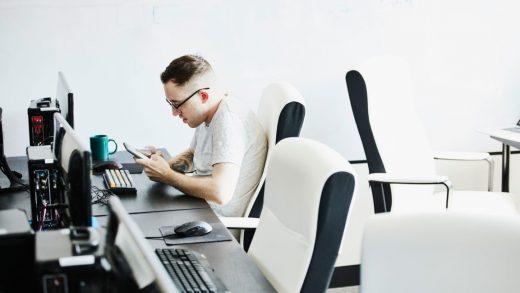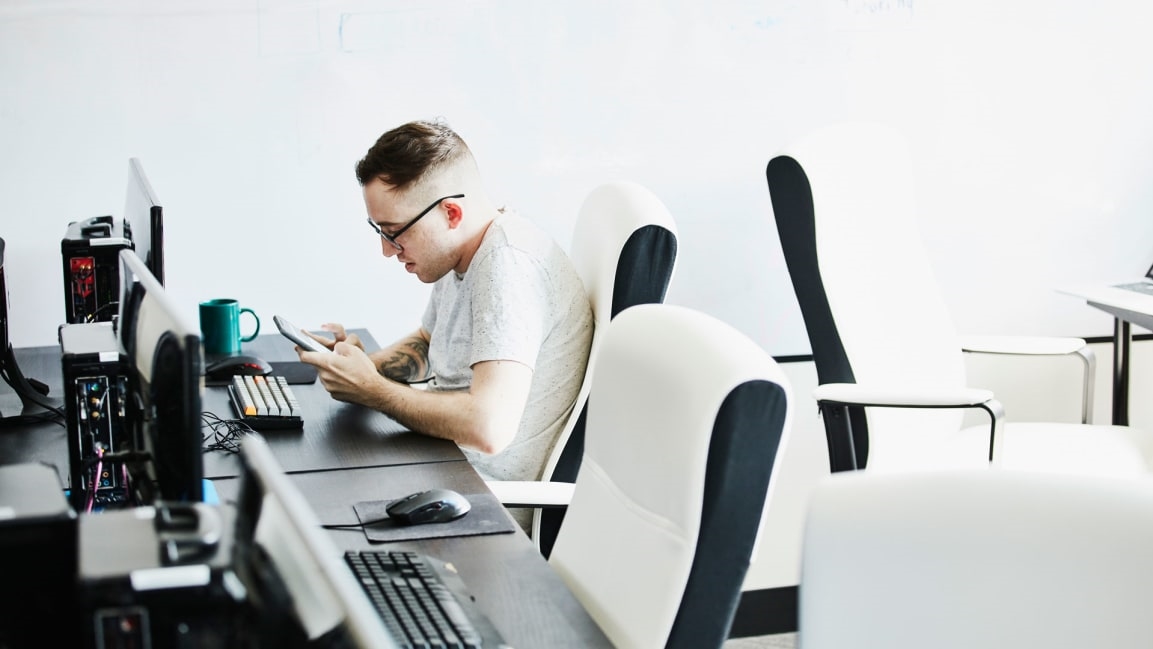5 surprising things in your office that are ruining your productivity
In this era of epic busyness, the last thing you need is an office environment that distracts you from getting work done. Yet, your office probably does make it harder to be productive, whether you have your own private home office or work in a cube farm.
Here are some of the biggest productivity sappers and what you can do about them:
The Halfalog
The bane of the open office environment isn’t the frequent conversations you might overhear, and it isn’t even movement (despite the constant prairie-dogging you get from people in half-height cubicles). You can learn to tune out a conversation going on nearby based on the predictable rising and falling intonations of people’s voices. And most of the moment in the periphery of your vision will only be noticed if you’re already looking up.
But unless you work by yourself, you’re likely surrounded by people talking on the phone. Those calls force you to listen to a “halfalog.” Yes. That’s a real term. It refers to listening to only half of a phone conversation. So why is it so much harder to tune out a halfalog than your two coworkers discussing their weekend plans? It turns out that it’s hard for your brain to predict when a voice will start and stop when you only hear half a conversation.
Solution: This is where some background noise is helpful. If you’re the kind of person who generally has laser focus, then just use white noise to drown out surrounding conversations. If you are the kind of person who is often distracted by different sounds, then music can also be a great way of masking the random sounds in the office.
The reminders to multitask
Your brain desperately wants to help you to predict what you are supposed to do next. So, if you’re around apps and devices that often need to be checked, then your brain will interrupt you every few minutes to remind you that you are supposed to do your check of your email, phone, or Slack feed. Your brain thinks it is being helpful, but odds are good that you don’t actually need to check your email every five minutes. Plus, each time you do, you’re losing valuable time from the task at hand.
Solution: Park your cell phone in a drawer and shut off your email browser and other apps while you’re focusing on a task. Your brain is less likely to prompt you to shift away from what you’re doing, and you’ll have a fighting chance to get some work done.
The two-minute interruption
Often, a quick face-to-face conversation can save a lot of time compared to an email chain that might take all day to resolve a simple problem. But, those conversations need to be scheduled at a time that works for both parties.
Colleagues may poke your head into your workspace to ask if they can interrupt for a quick two-minute conversation. Unfortunately, it may take you another 10 minutes to get back up to speed on your work after the distraction.
Solution: Work with your colleagues to put together a system where you can put up a signal that tells people when you can be interrupted and when they should come back later, like a sign on your office door. You can put a notepad nearby so people can let you know they came by and when they will be available to talk. That way, you can follow up with them later.
The hour-long meeting
Most meetings don’t need to take a full hour. While it’s useful to have a little small talk with colleagues before you get started, the one-hour meeting can prompt people to take too long to get to the point. (A big reason why most meetings are an hour long is that calendar apps like Outlook and Google Calendar default to an hour.)
Solution: Reset those defaults to 30 minutes, and only make a meeting an hour long when someone specifically requests it. You’ll be amazed how well that works.
The inconsistent desk
These days, we do fewer tasks with paper, so we don’t organize our desks the way people did when paper was the norm. Back then, people had pencil holders, staplers, tape dispensers, and other desk supplies readily available and laid out in a consistent place on their desks.
Now, you often don’t need to staple things, or use paper clips, or mark something with a sticky note. You might not even write on paper that often. But, chances are you use at least one of these desk supplies each day. If your desk isn’t organized in a consistent manner, then every time you do need a desk supply, you have to drop what you are doing and look for it. And that disruption can cause you to lose track of what you were working on.
Solution: If your desk is laid out in a consistent way, you can reach for supplies by habit without taking your mental focus off the task at hand. So, a little desk organization goes a long way toward keeping you on track.
(23)



